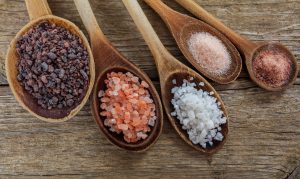
The Centers for Disease Control and Prevention (CDC) suggests that roughly 90 percent of Americans eat too much sodium—and it’s mostly in the form of salt.
Salt is loaded into processed foods. Even if you can’t necessarily taste it, it’s there. A fast-food hamburger, for example, may have more than 1,000 milligrams (mg) of sodium. The side of fries could add another 400 mg. The packaged chicken noodle soup may have more than 2,200 mg.
Daily recommendations for sodium intake depend on who you ask. The American Heart Association suggests an upper limit of around 1,500 mg per day, while federal dietary guidelines say 2,300 mg.
Most Americans average about 3,400 mg per day.
So, what is it doing to your heart?
For starters, it creates a bit of a plumbing issue. Think of your heart as a pump and your blood vessels as pipes. Two things happen when you eat excess salt:
1) Your heart pumps more blood
2) It causes your blood vessels to get smaller
Both of those are independent problems that can make excess salt a double-blow to blood pressure.
Within 30 minutes of having a large dose of salt, your blood vessel function becomes impaired. Over an extended period – I’m talking years – the impact can show up in the form of heart attacks and strokes.
Thankfully, cutting back on salt can have some quick impacts. Making a substantial reduction in salt intake can lead to lower blood pressure in a matter of hours or days.
How do you make a big cut back? Ultimately it comes down to avoiding processed food. Cooking at home with fresh ingredients can make a huge difference in sodium intake, and the little bit of table salt added in recipes or as seasoning will not put you over the limit.
It’s also recommended to play with flavors. Use different spices and seasonings to reduce reliance on salt. It may take some getting used to, but there are a lot more flavors out there!